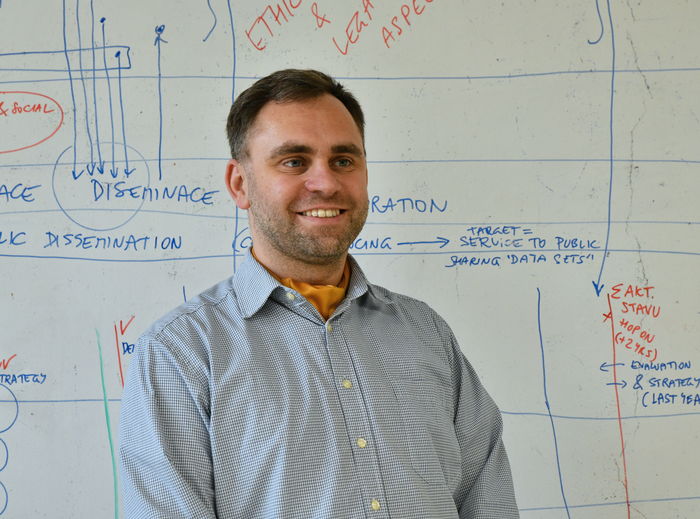Amazon Research Awards: AI researchers from the Faculty of Electrical Engineering have withstood global competition
Artificial intelligence (AI) research at the Faculty of Electrical Engineering of the Czech Technical University has entered the most prestigious company of 59 universities in 13 countries. Among the 101 scientists awarded by Amazon are prof. Jiří Matas from the Department of Cybernetics with a project in the field of computer vision and prof. Jan Faigl from the Department of Computers, who uses artificial intelligence to create communication maps of underground spaces.
The success of our experts in the Amazon Research Award 2020 (ARA) is another proof of the high level of scientific workplaces of the Faculty of Electrical Engineering. They are among the representatives of such sound universities as MIT, Stanford, Princeton or Yale, which will support the ARA program next year. Together with ETH Zurich, CTU is even the only European university that has twice the representation among the selected 101 holders. Thanks to Amazon, the Faculty of Electrical Engineering of the Czech Technical University will be able to finance the work of one or two doctoral students or postdoctoral students in scientific teams of awarded researchers for the following year. Successful projects will also gain access to more than 200 Amazon datasets to work with.
The awarded projects in the field of artificial intelligence, automation or robotics underwent a demanding selection that took into account the quality of scientific content, creative approach and possible positive impact on society as a whole.
The solution will improve the quality of mobile applications that translate foreign language texts on signs
Professor Jiří Matas, who focuses on improving the level of computer vision, succeeded in the Amazon Research Award 2020 with the project Training neural networks on non-differentiable losses.
„In some computer vision tasks, there are natural non-differentiable loss functions, such as text recognition, where the quality of an algorithm is often measured by the number of misrecognized characters or words. Non-differentiable loss functions also occur, for example, in the image search task, where quality is measured by the order of the required images in a list created in response to a query,” Professor Matas explains.

The research focuses on the surrogate functions being taught, which when learning convolutional neural networks not only look for parameters suitable for a given problem, but also improve the surrogate functions with the help of so-called metric learning. For example, the solution can help improve the quality of applications that take photos and translate foreign language texts on signs with a mobile camera or check the nutritional values listed on product packaging in stores.
"We already have the first results in research into the problem, they were published at one of the most prestigious conferences in the field, the European Conference on Computer Vision,” he adds.
The communication map will be used by rescue robot teams to explore unknown environments
Professor Jan Faigl from the Center for Artificial Intelligence of the Faculty of Electrical Engineering succeeded with the project Communication Maps Building in Subterranean Environments, which examines the use of machine learning methods, researching the use of machine learning in tasks of signal propagation characterisation in underground spaces.

"Our goal is to use real data to create a suitable model for predicting the spread and quality of communication without the need for precise modeling and knowledge of the exact geometric and material properties of the environment. This is in a way very bold and in the project we focus on creating suitable descriptors that will allow us to obtain as reliable an estimate of the propagation of signals to create a so-called communication map,” explains Professor Faigl.
The research is motivated by online creation of a communication infrastructure in a previously unknown environment, but with the use of models of similar environments and data obtained in the current environment.
“We are trying to design methods to ensure communication availability during reconnaissance missions in an unknown environment, and thus contribute to the effective coordination of a team of robots or human rescuers in environments that are otherwise inaccessible to communication,” adds Professor Faigl.
More information about the Amazon Research Awards and this year´s winners can be found here: 2020 Amazon Research Awards recipients announced.